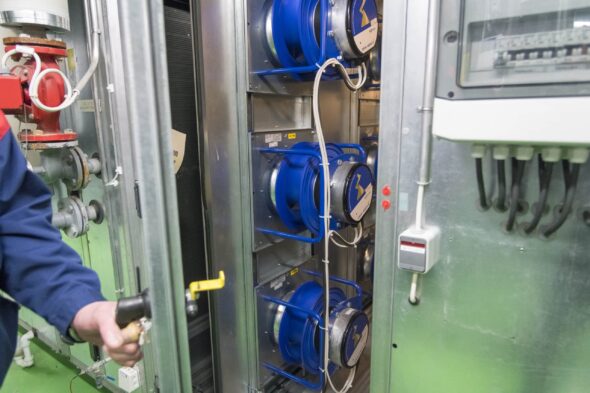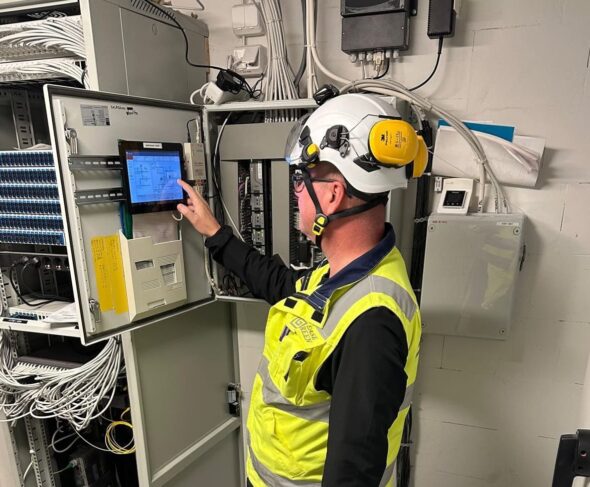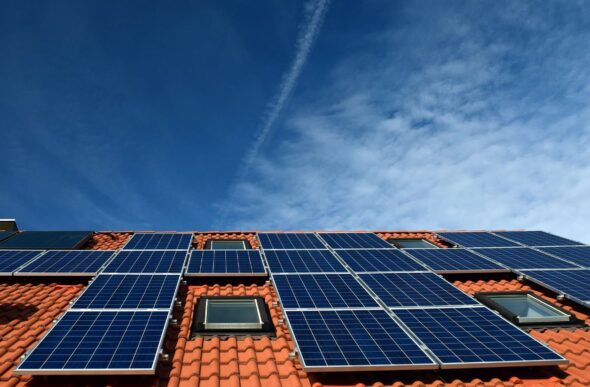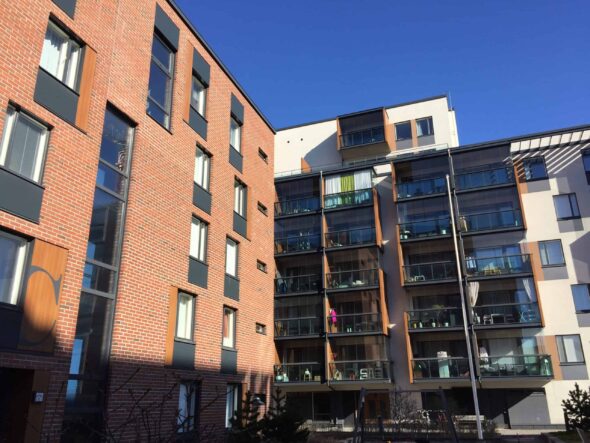“How are environmental issues taken into account in your company? Can you send a report? Bitte schön.”
This was roughly the request received by a real estate company that was renting office space in the capital region to a German company. The request was a weak signal of a phenomenon that is already the new normal in commercial real estate in Sweden and Central Europe: many companies and public authorities that rent premises require the landlord to act responsibly.
Energy efficiency needs to be trimmed, preferably with renewable electricity and heat, water consumption monitored, and so on. LEED and BREEAM certificates are a plus, as are solar panels on the roof and plugs for electric cars in the yard. And of course the bar is set high forCO2 reduction targets.
These are not just pious hopes. Conscious tenants may refuse to move into a building whose owner does not care about climate targets. This is very understandable: now that tenants themselves have increasingly stringent ESG (environmental, social and governance) targets, they are demanding the same from all partners.
A sustainable home is therefore a brand advantage. If there are two buildings next to each other, only one of which is green, and the specs are otherwise the same, it’s easy to guess which building the conscious operator will rent the commercial space from.
The new requirements may frighten property owners. They mean investment! It’s true. But these investments will pay for themselves. Energy and water bills will shrink as consumption decreases. Service intervals are getting longer. What’s more, improvements are eligible for government subsidies.
So-called green added value takes other forms in the real estate sector:
- When tenants are easy to find, premises are rarely empty. The better the rental performance, the less risky the asset and the more attractive it is to investors.
- Sustainably designed buildings are healthier for users. They are good places to breathe. This also increases rental income.
- Energy efficiency also protects against rising energy prices, which means managing climate risks.
This turns a threat into a multiple win-win situation. Green carrots are good for everyone.
An even more powerful force for change is the European Union’s Sustainable Finance Taxonomy Regulation. It brings common criteria for defining responsible business to almost all sectors of society. The real estate sector, with its large carbon load, is on board.
The details of the taxonomy will be known in the summer, but the basic idea is clear: investors will be able to easily rank companies in the sector in ecological order. This will have a radical impact on investor behaviour. Yet there has been little discussion of the issue in Finland.
Let’s think of an early German company. Soon, the landlord no longer has to ask about environmental responsibility, because the law requires him to publish what the taxonomy specifies on the company’s website. This means that sustainability is no longer an option but a must.
The taxonomy regulation is a logical follow-up to the directives that came into force in 2018 and 2019, which obliged large companies to publicly report on their ESG activities. It is unlikely to be the last EU standard to push business in a responsible direction. Black carbon business is no longer profitable. Good. There’s plenty to do for everyone in the emissions business, and there will be a rush anyway.
The first major investors have already said that they will only accept environmentally smart investments in the future.
Finnish company Varma has announced that it will make its portfolio carbon neutral by 2035. Varma’s Executive Vice President Reima Rytsölä said in a LeaseGreen webinar at the end of January that the climate targets fulfil the pension company’s legal mandate to invest safely and profitably. Could it be any clearer?
Nordea recently announced that it intends to reduce emissions from its investment and credit portfolio by 40-50% by 2030 compared to 2019 levels. The CEO of Blackrock , the world’s largest investment firm, is urging the CEO of every company to explain how business is contributing to the Paris climate agreement.
When money talks, it pays to listen. For property owners, there is really only one question left to answer: do I react before others and take on the competition, or do I only make improvements when I have to? No thanks!
The author Thomas Luther is the CEO of LeaseGreen. LeaseGreen is an enabler of energy efficiency in large properties and a driver of climate action. Lower costs, cleaner returns. Together with its customers, LeaseGreen is making the most impactful climate action in Finland – one property at a time.












